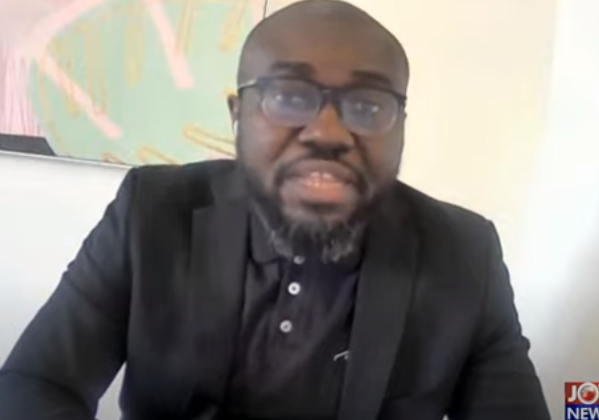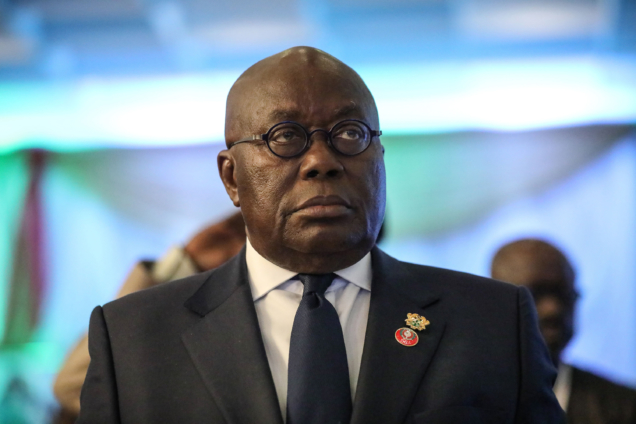Convener of the #FixTheCountry campaign, Oliver Barker-Vormawor, who has described the demands of agitating Ghanaian youths as structural, says government is either intentionally failing to fix the ailing governmental structures or is simply pretending to fix the problems.
According to him, for government to successfully meet the citizens' demands, they needed to draw on historical templates that call for the engagement of the youth in a broad discussion on how the ailing structures need to be fixed.
“Let’s go back to the basics in the process that brings everybody into the conversation that the problems that government thinks it knows, that the problems that about 600,000 people are tweeting about, putting up online can be brought into a framework and a structure and we can have a conversation that compromises are made, negotiated, arrangements are arrived at, that meets the needs of every Ghanaian.
“And we need to put that process in place. Without that process, we‘ll just be fighting at each other and claiming that somebody who’s saying that it’s the structure of government is not saying anything specific,” he said.

His comments follow statements made by some politicians that protestors need to list their demands and present it to government to tackle.
However, responding to such comments, Barker-Vormawor said asking agitating citizens to put their demands in a “laundry list” clearly shows a government that is out of touch with reality.
According to him, the demands of Ghanaians are structural in nature and thus deserve a broader engagement with government.
Drawing inspiration from the making of the 1992 constitution, Barker-Vormawor made a case for the need for citizens’ engagement in order to fix the country.
He said, “The circumstances under which we produced the 1992 Constitution was not the same circumstances we produced the 1979 Constitution.
"One was elites led where we had a minute commission where they developed the constitutional proposal and Rawlings as head of June 4th then declared it so, and it was proclaimed to be the constitution.
“But the other engaged all sectors of the Ghanaian society, market women had their place, the clergy had their place, teachers union had their place, everyone had their place in the process which was dedicated to building structure.
"Now, if a lot of the young people who are speaking were born after the 1992 Constitution and haven’t seen it live up to its promises, then we need to refix structure.”
He further called for the engagement of all state institutions as well as opposition parties in the discourse on how to fix the country.
According to him, “even the substance of how we do partisan politics in Ghana is something that we have to engage with.”
This, he says results from the winner-takes-all characteristic of Ghana’s political landscape which he claims alienates the opposition and places too much power in the hands of the ruling government.
And despite calls from civil society organisations to have that problem remedied, it still persists. Thus, that too should be addressed in future engagements with government.
Latest Stories
-
Affirmative Action Coalition condemns lack of gender quotas in Transition, anti-corruption teams
5 minutes -
December 7 election was a battle for the ‘soul of Ghana’ against NPP – Fifi Kwetey
7 minutes -
Social media buzzing ahead of Black Sherif’s ‘Zaama Disco’ on December 21
21 minutes -
Afenyo-Markin still suffering from the massive defeat – Fifi Kwetey
28 minutes -
Retain Afenyo-Markin as NPP leader, he has experience – Deputy Speaker
40 minutes -
Kufuor didn’t leave behind a strong economy – Fifi Kwetey
43 minutes -
It won’t be business as usual, remain humble – Fifi Kwetey to party members
2 hours -
Ebenezer Ahumah Djietror appointed as new Clerk to Parliament
2 hours -
Actress Benyiwaa of ‘Efiewura’ TV series dead
3 hours -
Ashanti Regional Chief Imam dies at age 74
3 hours -
Africa Arts Network calls for tax reform to save Ghana’s theatre industry
3 hours -
SSTN Ghana Chapter reaffirms commitment to economic growth under new leadership
4 hours -
Inlaks strengthens leadership team with key appointments to drive growth across sub-Saharan Africa
5 hours -
Green Financing: What Ghana’s Eco-startups need to know
5 hours -
CHAN Qualifiers: Amoah confident of beating Nigeria
5 hours

